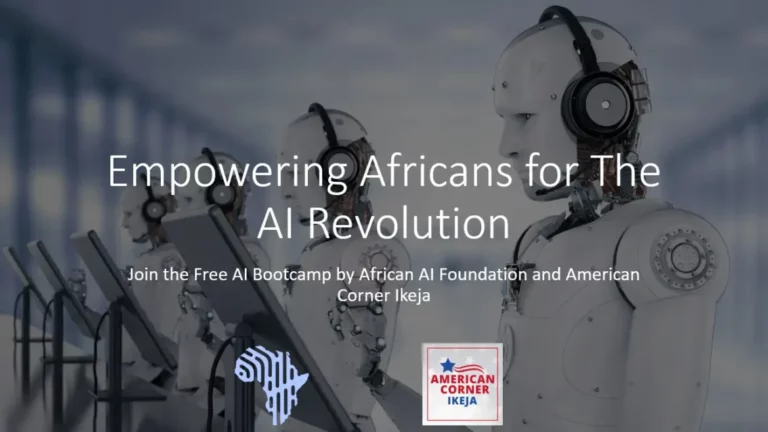Artificial Intelligence— A Game Changer for Business Insights

In the age of rapid digital transformation, Artificial Intelligence (AI) is no longer tomorrow’s technology; it is today’s innovation, fundamentally reshaping how businesses operate. From predicting market trends to automating decision-making, AI is a game-changer for extracting meaningful insights from data, enabling companies to thrive in an increasingly competitive landscape.
Modern organizations generate overwhelming data daily, from sales figures and customer feedback to social media activity and operational metrics. While this data holds immense potential, its sheer volume and complexity often render it unusable without the right tools. Artificial intelligence transforms raw data into actionable insights that drive better decisions and strategic growth.
The Power of AI in Data Analysis
Its most compelling feature is AI’s ability to process and analyze vast datasets in real time. Unlike traditional methods, which rely on manual analysis or static algorithms, AI leverages advanced techniques like machine learning (ML) and natural language processing (NLP) to uncover hidden patterns, trends, and relationships. These insights enable businesses to predict outcomes, optimize resources, and better understand their markets. For example, AI-powered predictive analytics allows companies to anticipate customer needs and preferences. Retailers can use these insights to personalize marketing campaigns, recommend products, and manage inventory more efficiently. Similarly, AI analyzes customer transaction data in the financial sector to detect fraudulent activities, assess credit risks, and recommend investment opportunities.
Real-World Applications in Business
During my professional experience as a Performance Monitoring Data Analyst, I have seen firsthand how AI revolutionizes business intelligence. When integrated with AI capabilities, tools like Microsoft Power BI and Tableau enable organizations to visualize data interactively and draw meaningful conclusions quickly. These platforms now incorporate AI features such as automated insights, anomaly detection, and natural language queries, making accessing and interpreting complex data easier for non-technical users.
My research into consumer complaints classification using an AI-based Python app further highlights the transformative potential of this technology. By employing NLP, the app categorizes complaints precisely, streamlining the workflow for customer service teams. The result is a faster response time and a more personalized approach to resolving problems. Such innovations are critical for building trust and loyalty in a customer-centric economy.
Moreover, AI’s applications extend beyond operations and customer service. In supply chain management, AI algorithms optimize delivery routes, predict demand fluctuations, and minimize waste. In human resources, AI-driven analytics help identify skill gaps, predict employee attrition, and enhance recruitment strategies by matching candidates to roles more accurately.
Challenges and Ethical Considerations
While the benefits of AI are undeniable, businesses must navigate specific challenges to realize their full potential fully. Data privacy and security remain significant concerns, particularly in industries that handle sensitive information, such as healthcare and finance. Organizations must comply with regulations like the General Data Protection Regulation (GDPR) and ensure robust safeguards to protect customer data.
Ethical considerations are equally important. AI systems are only as unbiased as the data on which they are trained. Any inherent dataset bias can lead to discriminatory outcomes, affecting everything from hiring decisions to loan approvals. Transparency, fairness, and accountability must guide the development and deployment of AI systems to build stakeholder trust.
The Future of AI-Driven Insights
The future of AI in business intelligence is bright and promising. Advancements in technologies like deep learning, augmented analytics, and explainable AI are set to enhance the scope of business insights further. With explainable AI, for instance, decision-makers can understand how AI systems arrive at recommendations, fostering greater trust and adoption.
AI’s integration with Internet of Things (IoT) devices is another exciting frontier. IoT generates a continuous stream of real-time data, and AI can analyze this data to enable more intelligent automation, predictive maintenance, and enhanced customer experiences. For example, a smart thermostat manufacturer could use AI to analyze usage data and recommend energy-saving tips tailored to individual customers.
Conclusion
Artificial Intelligence is not just a tool but a paradigm shift in how businesses understand and act on data. By harnessing AI, organizations can uncover deeper insights, streamline processes, and unlock new growth opportunities. However, adopting AI is not merely about acquiring the technology; it requires a cultural shift toward data-driven decision-making and a commitment to ethical practices.
For businesses in Nigeria and globally, the time to embrace AI is now. Those who invest in AI-driven solutions will gain a competitive edge and position themselves as leaders in an increasingly data-driven world. AI is the game-changer for business insights in this era of limitless possibilities.
Samuel Awe is a data analyst and researcher specializing in artificial intelligence and business intelligence applications.







